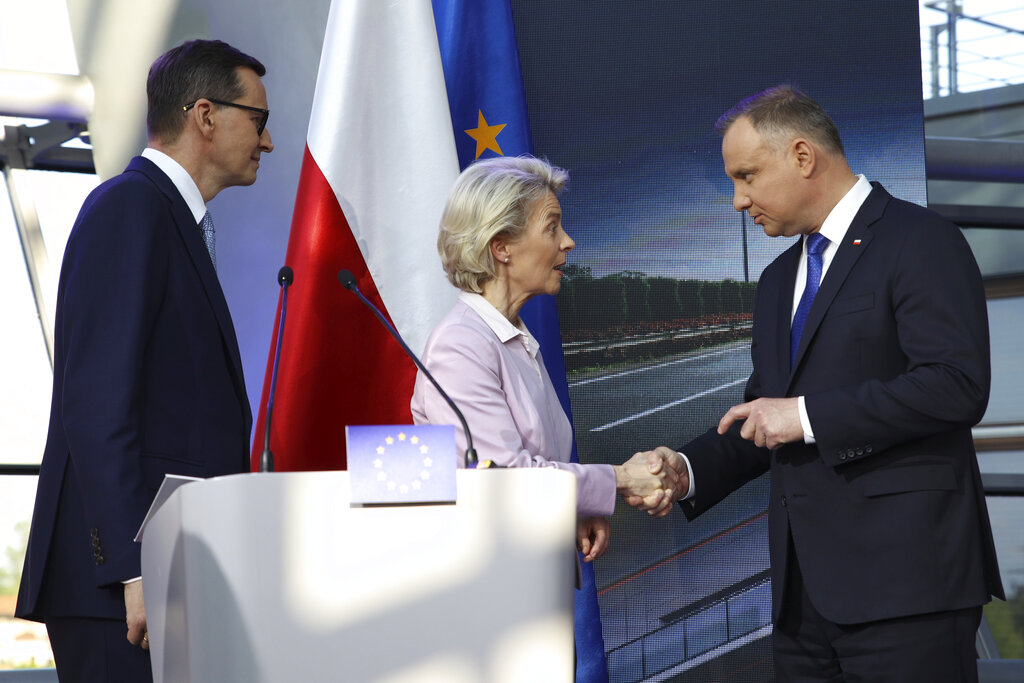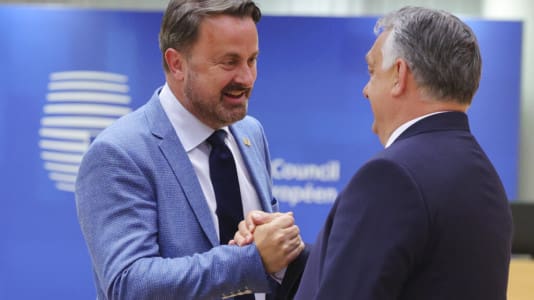During her visit to Warsaw, President of the European Commission Ursula von der Leyen confirmed that an agreement had been reached regarding Poland’s operational program for using the Recovery Fund allocation of €58 billion. However, she also warned that “milestones” connected with judicial independence would have to be met for the funds to be paid out.
“First of all, the Disciplinary Chamber (of the Supreme Court) will have to be disbanded and replaced with an independent court. The disciplinary regime must be reformed, and judges who have been affected by the decisions taken by the Disciplinary Chamber will have the right to have their cases reviewed by the new chamber,” said von der Leyen.
“These three undertakings, which have been timetabled as ‘milestones,’ will have to be fulfilled before disbursements will be made. The first payment will be possible when the new legislation (on the Supreme Court) is implemented,” she added
Von der Leyen refused to be drawn into commenting on the European Commission’s views on the current legislation regarding the Polish Supreme Court, simply stating it was important for the law to be passed and for the regulations contained within it to be implemented.
Last week, the lower chamber of the Polish Parliament passed a law on the Polish Supreme Court; this dissolved the Disciplinary Chamber and envisaged a procedure to test the “neutrality and independence of a judge,” but not with regard to rulings that have already been made. The law cleared the upper chamber of Parliament on Wednesday, and the amendments introduced must now return to the lower chamber before the law is ready to be signed by Poland’s president.
Polish Prime Minister Mateusz Morawiecki said he was relieved and delighted over the European Commission’s decision. He indicated that Poland’s strong economic growth was one of the main engines of Europe and that the recovery fund will support both the development of Poland and Europe. However, he also offered up a scathing assessment of Poland’s liberal opposition, which he accused of “persuading some officials in Brussels that the rule of law was being violated in Poland.”
Morawiecki underlined that Poland wants a strong EU that “respects the rights of sovereign states” and that one of those rights was to reform their judicial system. He said that the legislation to abolish Poland’s Disciplinary Chamber had been taken in light of past negative feedback from the EU and that the current government’s emphasis on the fight against corruption in Poland’s public finances was the right path.
The Polish prime minister emphasized that the EU can count on Poland.
“The EU was able to count on Poland in the difficult days of the COVID crisis when we distributed vaccines to third parties with which the EU cooperates, and now we are assisting Ukraine and our firefighters are helping put out fires in Europe,” he noted.






